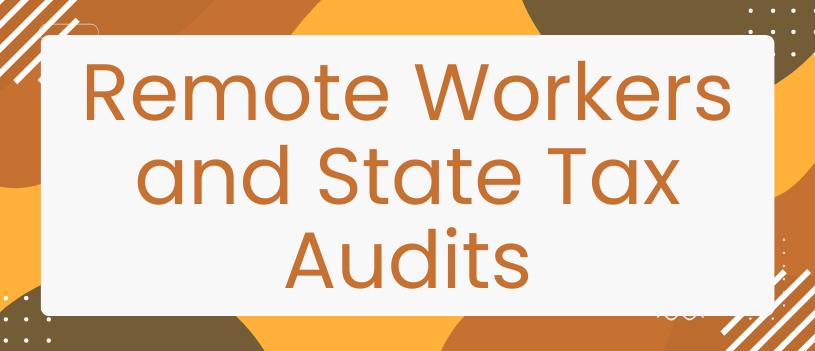If you are an individual who worked in another state during 2021, you may receive a state tax audit notice. With remote work continuing to increase across the country, we will most likely see a large amount of these dual-state workers due to the new workplace environment.
According to Nishant Mittal, co-founder of Monaeo, there are multiple implications to the new two-state work issue. For example, most states take a close look at those who claim that they have changed their state of residence.
If you were to claim that you are no longer a resident of New York, you would have to prove you are breaking ties with the state and are going to be residing in a new one. Unfortunately, even if you have relocated to a different state, it is possible that you may still be liable for New York taxes if you have a dwelling in which you have access in that state.
For example, if your parents reside in New York and you have access to their property, it is possible you may be considered a resident for tax purposes. In New York, if an individual has access to a place of living and spends more than 182 days at the location, they would be taxed.
Although you may be successful at proving you are no longer a resident in the state, you could still be liable for New York tax as a nonresident. If you have income coming from a New York source then you would be taxed for that reason as well.
Generally, the state of New York is only aggressive towards high-net-worth individuals who claim they have no ties to the state. For example, a taxpayer could permanently relocate to California, however, they may travel now and then to New York to meet with business colleagues. In this scenario, it is up to the individual’s company to ensure that they withhold on wealth that this worker earned while in New York. If a company does not do this, then they could responsible for the taxes.
Another issue with dual state workers, is that per the “convenience of the employee” rule, if an individual decides to move to a new state for their own convenience but is performing the same work they did in New York, then for tax purposes they are still considered to be performing the work in New York.
It’s important to note that each state responds differently to the new telecommuting work environment. If you have questions regarding your tax liability, it is recommended to reach out to your tax professional for more details.
